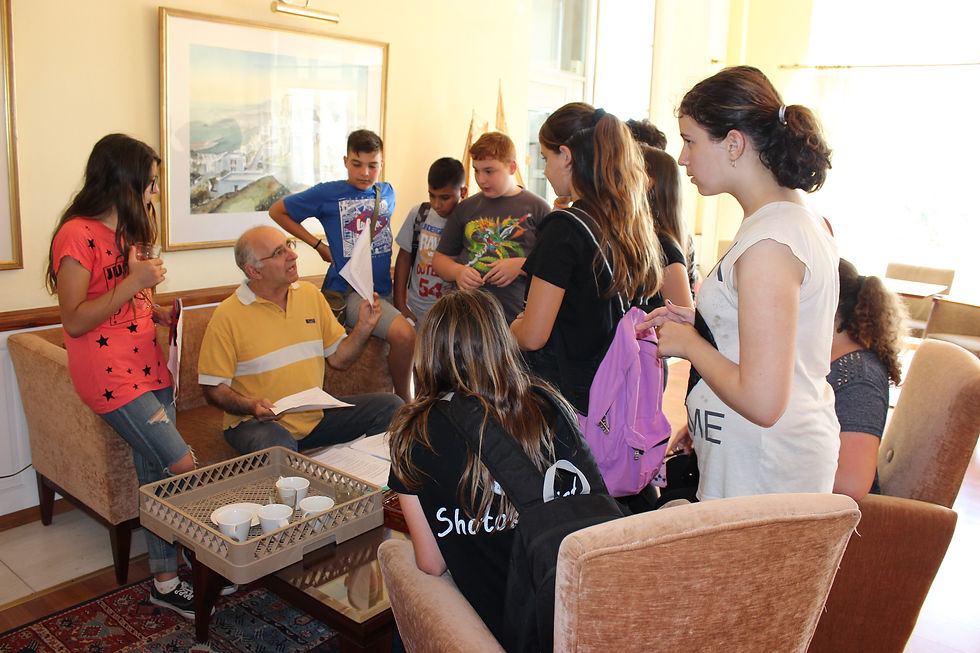





Constitutional debate
Who
Equality Cooperativa Sociale Onlus
Why
The purpose is to increase democratic dialogue, improve citizen skills and participation on the Referendum’s Eve for Italian Constitution. The aim was also to work on the respect of different opinions, to improve problem solving ability no matter if the young persons would have voted to the referendum. It was an exercise to working together while experimenting one’s rights and one’s ability to collect information and compare opinions.
The workshop also aimed to improve young person ability to form alliances.
What
The practice consisted on a debate and a preparation for it on a specific topic. Debates are common forms of exercise in Anglo-Saxon high schools and universities, in which two or more teams dispute on a topic.
In September 2016 a group of young persons of Scalcerle highschool asked to have more information about Italian Constitution and the political system.
In Italy, in December 2016, there would have been a referendum to confirm or not confirm the government proposal for changing Italian Constitution. These young persons (18 years old) had to vote for the first time in their life. For that reason, they wanted to know more about current Italian Constitution and its possible reforms if the Referendum results would have turned for changing the Italian Constitution.
At the same moment, a group of professionals working in school was engaged on elaborating procedures to encourage young persons civic participation. Knowing that the young persons in school were interested, these professionals proposed to elaborate some lessons for the young persons of the last classes, in order to examine with them and to increase knowledge on: the rule of law, the Italian Constitution and also the characteristic of Constitutional transformations about which young persons and all citizens were asked to vote.
How
Selection: all young persons of all last secondary school classes - 5th classes (about 250 students)
The project elaborated by the professionals was based on:
- one lesson about constitutional fundamental principles and organization of power in Italy (parliament, executive and judiciary);
- one lesson about the characteristic of Constitutional transformations who were the object of the Italian Constitutional referendum.
At the end of these first lessons, young persons of each class were divided into 5 groups. Each group had to further knowledge, get more acquainted with some part of reforms object of the Constitutional referendum. They studied a lot, helped by the professionals. And prepared themselves for a debate in their class. Finally, a debate was held in the school auditorium between a team of four young persons from each class. Until the day of the main and big debate they knew possible questions but didn't know if they had had to be for reforms of the Constitution or against them. About 200 young persons who were not part of a team were the public of the debate. They had to vote at the end of each debate but not in consideration of their politic opinion but only considering the capacity of the speakers.
When
During the ordinary lessons but also in the afternoon,during whole school year.
Effect
Increased knowledge on the topic proposed that can be “assessed” through the final debate. During the debate young persons showed to have increased their ability in democratic dialogue.
Assessment
Effectiveness:
High degree / regularly
Gender sensitivity:
High degree / regularly
Culture sensitivity:
High degree / regularly
Doable (practical):
High degree / regularly
Participatory:
High degree / regularly
Replicable and adaptable:
High degree / regularly
Assessment/evaluated:
High degree / regularly
Type of good practice
Methods
Themes
Democratic dialogue, Promoting democratic values, Youth civic participation
Duration
One month or less
Type of activity
Group activity
Resourses
Materials: books, websites linked to the topic, blocco-notes, classroom, auditorium. Human resources: 2-3 professionals